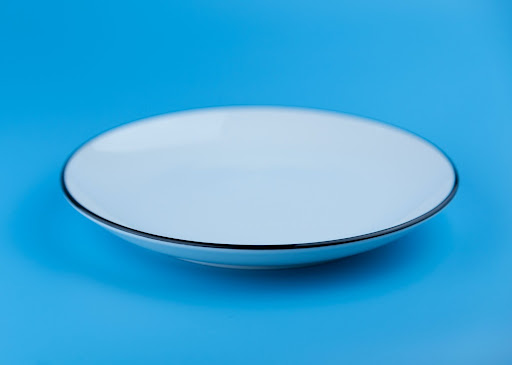
What Fasting Does To Your Body
Fasting is a practice that has ancient roots in many cultures. However, there’s a good reason that it’s stuck around so long. This blog will give you a complete look at where fasting comes from and what exactly it does to your body. We’ll also measure up traditional fasting against juice cleansing (like our famous 21 day juice cleanse) and give tips for things like using green juice during intermittent fasting.
Where is Fasting From?
To many people, fasting is just not eating food. However, fasting is a lot more complex than that. It can involve the giving up of any substance. Most often, this is concerning specific kinds of food or drink. Fasting can be for health reasons, but also religious reasons as well. What’s important to understand right off the bat is that fasting is deliberate and controlled – it’s not starvation.
Prehistoric times, fasting was often times the key to better health. This makes it impossible to put a hard date on when the practice started. One of the earliest records of fasting that we have record of is from the Hippocrates. Yep, that’s the father of medicine, he of the Hippocratic oath. He was also a big fan of fasting, as were other ancient Greek writers like Plutarch. The ancient Greeks, in general, believed that fasting was just as necessary as bed rest when it came to fighting and preventing illnesses.
However, fasting was also becoming a crucial part of many religions worldwide. Christianity, Islam, and Buddhism are just a few examples of religions that have fasting as part of their heritage and culture. This has helped fasting spread to plenty of countries around the globe.
These early recommendations for fasting were based mainly on, pardon the pun, gut feelings. People in older periods understood that fasting made them feel better but didn’t understand why.
In the 19th century, people started to get curious about the actual mechanisms of fasting. Scientists began to link specific dietary choices to particular illnesses, and the sciences of nutrition and dieting started to emerge. People also started to try some of the first nutritional fasts for themselves, experimenting with foods, drinks, and lengths of time.
By the 20th century, nutritionists had managed to hone in on what exactly fasting was doing to the body.

Fasting and You
Before we talk about what fasting does to the body, it’s important to understand that fasting refers to limited and controlled periods of reduced or no food or liquid consumption. There’s a big difference between controlled fasting and starving. It’s never a good idea to put your body into starvation mode. Specifically, starving refers to the point where your body starts to burn muscle mass for energy.
But what happens between being full and starvation? That’s where fasting comes in.
The main difference between your body in “fasting mode” and your body in “regular mode” is how your body handles its blood sugar. If you are using green juice during intermittent fasting or other fasting methods, your carbohydrate intake will be lower. If they’re available, your body will automatically use carbs to produce glucose, which is where you get your blood sugar from.
During a period of lower carb intake, like a 21 day cleanse, your body will switch from using carbohydrates to make glucose to using fat. This is why 21 day detoxes are so effective for weight loss. During fasting, you’re making the most efficient use of your body’s energy reserves.
Benefits of Fasting
Does it actually matter how your body creates glucose? Studies and signs point to a real benefit to practices like intermittent fasting and 21 day juice cleanses. Here are some of the changes that fasting can make in your body.
* Controls Blood Sugar Levels: Intermittent fasting is one of the most effective ways to get your blood sugar levels under control, as it helps regulate the production of glucose in your body. Not only can this cut the risk of conditions like diabetes, but it can also help you get control of sugar cravings.
* Decreases Inflammation: Intermittent fasting has been shown to help reduce inflammation in the body. This can help promote better health of the heart and lungs and potentially reduce your risk of cancer.
* Losing Weight: Remember how we mentioned that fasting switches your body onto using fat for glucose instead of carbs? If your body is consuming its fat reserves, that can help a ton with your weight loss goals
* Improves Your Brain Health: Intriguing studies suggest that fasting can help sharpen your brain and prevent diseases that might affect your neurological symptoms. This could be why many religions promoted fasting for clarity of thought and periods of contemplation.
* Help You Live Longer: The studies are still preliminary on this one, but fasting in animals has been shown to help prolong life and health. Fasting may be the key to aging gracefully.
Importance of Juice Cleanses
Simply giving up food is a type of fasting that walks a fragile line. On one side, you could potentially hurt yourself by denying your body nutrients. On the other hand, you’re going to get incredible cravings from this kind of deprivation. This can then lead to binge eating after the fast is over.
A 21 day juice cleanse is a way to get the weight loss and health benefits of fasting in a controlled and feasible manner. You get every nutrient your body needs, letting your fast in a safe and healthy manner. Using green juice during intermittent fasting is also a great way to regular your blood sugar levels, meaning you can save yourself from binge eating.
If you’re interested in our own famous 21 day detox, make sure to check out our package options here. Our 21 day cleanses come with not just delicious green drinks but detox smoothies and detox soups to give you the most achievable and most effective 21 day juice cleanse out there.